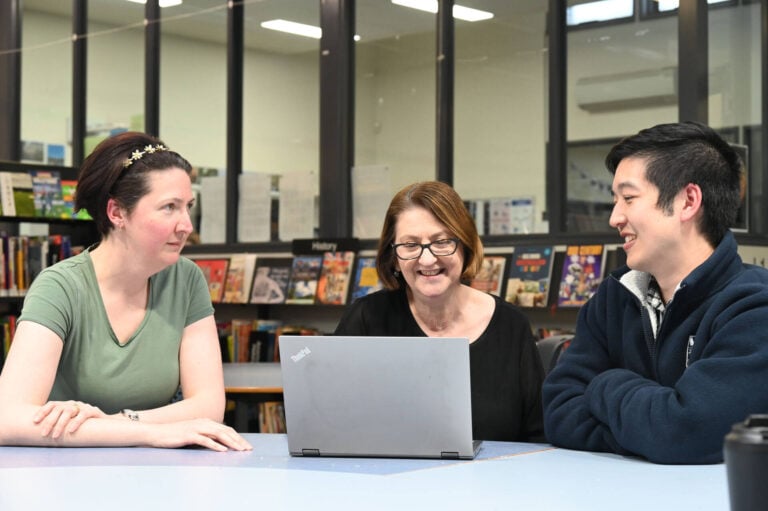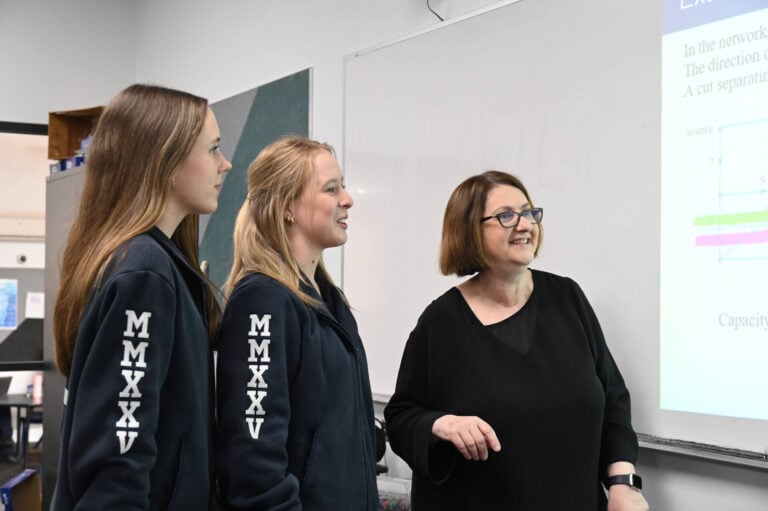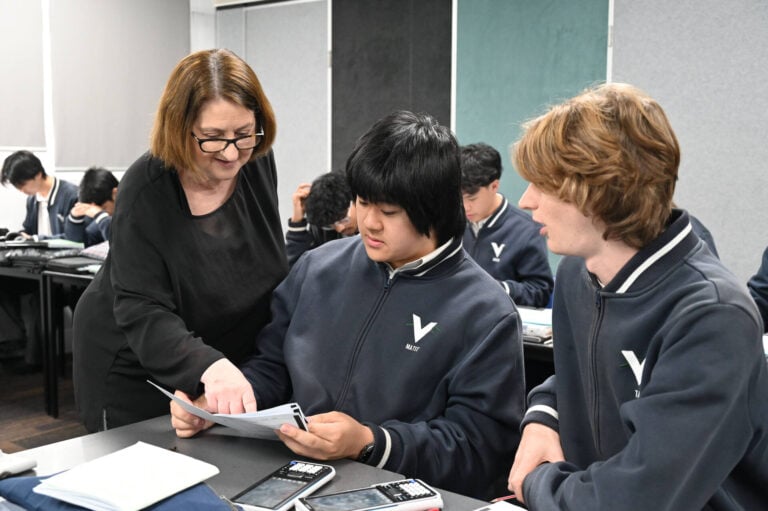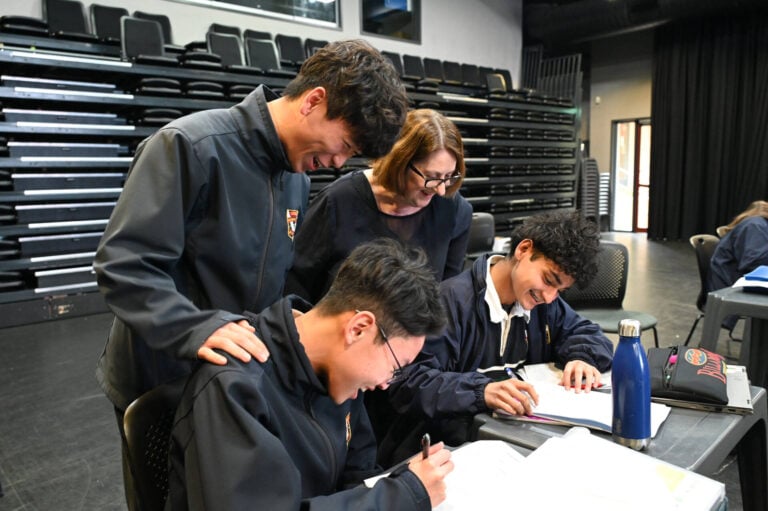High school teacher Mary Zervos has been named as a finalist in the 2025 Victorian Education Excellence Awards, nominated for the Outstanding Secondary Teacher award.
Mary began teaching in 1984 at Wellington Secondary College and has been at Vermont Secondary College since 1991 where she is the Head of Learning and Teaching. She was previously Head of Mathematics and Numeracy.
She has transformed mathematics learning at Vermont, improving both student performance and attitudes.
She promotes maths as a vital life skill through her student-centred teaching and as an instructional leader, oversees curriculum planning across all year levels.
Mary told Neos Kosmos that she was shocked with the nomination.

“I am incredibly humbled and honoured to be named a finalist in the Victorian Education Excellence Awards,” she said.
“To be recognised at this level was truly unexpected. When I was first approached about the nomination, it honestly took me by surprise.
“That said, the nomination itself means a great deal to me, as it acknowledges that the work I do every day is seen, valued, and appreciated.”
Mary co-developed Years 9–12 booklets outlining key standards, aims and assessments, helping students better understand their work.
She also mentors teaching teams to refine practice through collaboration and feedback.
It is her colleagues that Mary praised, saying that the initiatives she’s implemented are a team effort.

“While I may be the one named in the nomination, this recognition is very much a reflection of the collective effort behind me. It truly belongs to the team I work with each day,” she said.
When she became head of mathematics and numeracy in 2013, the school had just one advanced maths class and only three students achieving perfect ATAR scores.
Today, there are five advanced classes, 15 perfect scores, and even a student who represented Australia at the International Maths Olympiad, bringing home a bronze medal.
Mary finds it rewarding and exciting to see students achieve these successes, but thinks it’s equally powerful to see student leave school with the numeracy skills to succeed in life and work.

“For me, success isn’t defined by medals or rankings alone, but by the belief students develop in their own mathematical thinking and their ability to apply it beyond the classroom,” she said.
Mary’s parents were both born in Greece, her father from Palairos, a village on the west coast of mainland Greece, nestled in a bay of the Ionian Sea, and her mother from Nestani, a village in the Arcadia region of the Peloponnese peninsula.
They met after migrating to Melbourne in the 1950s and despite their strong desire to learn a new language and assimilate into a new culture, they still held tightly to their Greek heritage and traditions, values which they passed down.
“My parents’ education was greatly impacted by war and family hardship,” Mary said.
“Despite these challenges, they had a strong belief in the power of education as a key to opening doors to a better life.
“My mum would often say, ‘You cannot miss a day of school, as you may never have that opportunity to learn what you missed again.’
“They also held great respect for teachers as educators and mentors. These values have deeply influenced my own teaching career, constantly reminding me of the profound impact education can have on a person’s future.”
With parents that made sure she went to school, Mary developed a love for mathematics.
So much so that she found a natural ability to explain maths concepts in a way that made sense to others.
“The combination of a passion for maths and a genuine desire to help others learn is what first drew me to teaching,” she said.
“This is reflected in the way I structure of my lessons. My goal is for students to leave the classroom with real understanding.
“I want them to feel confident in knowing how and why something works, not as though they’ve just witnessed ‘maths magic’, but that they have made sense of it for themselves.”

She has remained passionate about teaching because of it’s ability to make a meaningful impact on young people.
“Helping students with low confidence realise they can succeed, and watching their confidence grow through encouragement and understanding, is incredibly rewarding,” she said.
“Those lightbulb moments, when a concept finally clicks, make the work fulfilling.”
As a teacher from a Greek background, Mary thinks it’s important for students multicultural backgrounds to see teachers who share and understand their culture.
“The basis for connection is already established,” she said.
“When teachers have similar cultural experiences, they are better able to relate to students’ perspectives, challenges, and traditions.
“This understanding fosters a supportive learning environment where students feel seen, valued, and understood, significantly enhancing their confidence and engagement.”